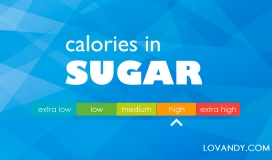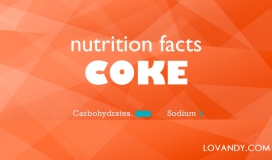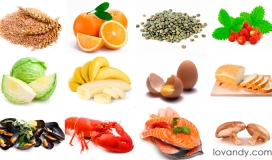If you are trying to make your diet as healthy as possible, you might have heard about bean sprouts. Are they as healthy and beneficial as many claim? Let us find out!
What Are Bean Sprouts?
Bean sprouts have long been considered practically the most beneficial green food. Even in ancient times, they were used not only as healthy food, but also as medicines for colds and some diseases. So, what happens to the grain when it starts to germinate?
Saturated by water, the grain awakens from sleep, and starts to accumulate as many useful elements as possible, so that it can grow fast.
Therefore, bean sprouts are much more useful for your health than regular beans are. Sprouted seeds contain a huge amount of vitamins, microelements and all essential amino acids. All these substances are stored in a natural form, convenient for your body, unlike pharmaceutical vitamins.
Most vitamins are destroyed by heat treatment, long-term storage and even sunlight, which is why storing some vegetables for long makes them almost useless. However, bean sprouts are a fresh food, where all the microelements are accumulating until you consume them.
List of Sprouted Pulses
We have made a short list of the most popular and health-beneficial bean sprouts you can grow and eat. In fact, anything in this list is useful; so, you may just taste all these beans and decide which ones you like the most. If you want to know more about each one, check out paragraphs below.
- Mung Beans,
- Soybeans,
- Chickpeas,
- Lentils,
- Green Peas,
- Alfalfa,
- Azuki Beans,
- Beet Sprouting Seeds,
- Mustard and Cress,
- Snow peas.
Bean Sprout Nutritional Value
Bean sprouts contain all the essential amino acids that your body needs. Moreover, all the vitamins and minerals you can get from them are easily assimilated because of special enzymes.
Talking about protein content, there are no more than 10 g in most of the sprouts (in 100 g of beans).
Considering the daily intake of proteins for women is approximately 120-140 grams, some bean sprouts may be a main dish in your diet, if you are vegetarian. Almost all of the mentioned beans contain a relatively moderate amount of fats. However, all of them are vegetable ones. This means it is hard to gain weight by eating sprouts.
There are no more than 25 g of carbohydrates in some bean sprouts. However, alfalfa, for example, contains only two grams. With the norm of 150-200 g per day, most of the sprouts cannot give you a lot of energy.
So, why are these bean sprouts so beneficial? The answer is in their vitamin and mineral content. Let us find out more about each kind of beans!
Mung Bean Sprouts Are Filled with Amino Acids
Sprouted mung beans contain 18 amino acids, including all the essential for human body ones. The caloric content of this culture is only 30 kcal per 100 g, so it is indispensable for those who want to get rid of extra pounds.
Mung beans, especially sprouted ones, also contain a lot of dietary fiber.
It is good for your stomach and intestines. In addition, there are isoflavones in mung. These are nutrients from the class of phytoestrogens that help to regulate a hormonal activity. There are also many vitamins in this bean, especially from group B and C, as well as manganese, potassium, iron etc.
| Name of nutrition component | Content per 100 g | Percent of daily intake* |
|---|---|---|
| Energy | 30 kcal | 1.5% |
| Proteins | 3 g | 6.5% |
| Fats | 0.2 g | 0.7% |
| Carbohydrates | 5.9 g | 4.5% |
| Fiber | 1.8 g | 7.2% |
| Calcium | 13 mg | 1.3% |
| Iron | 0.9 mg | 11.25% |
| Magnesium | 21 mg | 6.6% |
| Phosphorus | 54 mg | 7.7% |
| Potassium | 149 mg | 3.2% |
| Sodium | 6 mg | 0.3% |
| Zinc | 0.4 mg | 5% |
| Vitamin A | 1 µg | 0.1% |
| Vitamin B1 | 84 µg | 7.6% |
| Vitamin B2 | 124 µg | 11.3% |
| Vitamin B3 (PP) | 749 µg | 5.4% |
| Vitamin B6 | 88 µg | 6.7% |
| Vitamin B9 | 61 µg | 15.3% |
| Vitamin C | 13.2 mg | 17.6% |
Soybean Sprouts Are a Natural Storage of Phospholipids
Soybean sprouts contain a lot of fiber as well. Therefore, a regular consumption of this product helps your body get rid of harmful toxins, and keep your gastrointestinal tract healthy. As you can see from the chart below, soybeans contain a lot more protein, so they might be your main dish if you do not eat meat. Talking about vitamins and minerals, soybean sprouts are much more beneficial than mung.
There is lecithin in soybeans, which helps to prevent the formation of plaques in vessels and gallstones in bladder.
In addition to lecithin, choline from soybean sprouts contributes to the restoration of nerves and brain cells. It is noticed that adding soybean sprouts to your diet helps to improve attention, memory and thinking.
| Name of nutrition component | Content per 100 g | Percent of daily intake* |
|---|---|---|
| Energy | 122 kcal | 6.1% |
| Proteins | 13 g | 28.3% |
| Fats | 6.7 g | 24.8% |
| Carbohydrates | 9.6 g | 7.4% |
| Fiber | 1.1 g | 4.4% |
| Calcium | 67 mg | 6.7% |
| Iron | 2.1 mg | 11.7% |
| Magnesium | 72 mg | 22.5% |
| Phosphorus | 164 mg | 23.4% |
| Potassium | 484 mg | 10.3% |
| Sodium | 14 mg | 0.6% |
| Zinc | 1.2 mg | 15% |
| Vitamin A | 1 µg | 0.1% |
| Vitamin B1 | 340 µg | 30.9% |
| Vitamin B2 | 118 µg | 10.7% |
| Vitamin B3 (PP) | 1148 µg | 8.2% |
| Vitamin B6 | 176 µg | 13.5% |
| Vitamin B9 | 172 µg | 43% |
| Vitamin C | 15.3 mg | 20.4% |
Almost Every Beneficial Mineral Is Contained in Sprouted Chickpeas
Sprouted chickpeas, as known as garbanzo beans, also contain a lot of protein and dietary fiber. However, the main advantage of this bean is the presence of methionine and tryptophan in its content. These two acids are necessary to maintain the tone and immunity of your body.
In addition, chickpeas include about 80 names of minerals and other vitamins, including phosphorus, magnesium, B vitamins, manganese, potassium, folic and nicotinic acid.
Recent studies have shown that consuming sprouted chickpeas helps to slow down the aging process and remain the skin smooth for a long time. It is also a very good idea to eat this bean during pregnancy, considering all the essential substances in its composition.
Chickpeas have the highest concentration of carbs among all the beans we have mentioned. This makes chickpea sprouts a comparatively energetic food. That is why you should not eat too much, unless you exercise often.
| Name of nutrition component | Content per 100 g | Percent of daily intake* |
|---|---|---|
| Energy | 165 kcal | 8.3% |
| Proteins | 10 g | 21.7% |
| Fats | 4 g | 14.8% |
| Carbohydrates | 24 g | 18.5% |
| Fiber | 3 g | 12% |
| Calcium | 80 mg | 8% |
| Iron | 4.7 mg | 26.1% |
| Magnesium | 78.7 mg | 24.6% |
| Phosphorus | 276 mg | 39.4% |
| Potassium | 477 mg | 10.1% |
| Sodium | 11.5 mg | 0.5% |
| Zinc | 2.5 mg | 31.3% |
| Vitamin A | 3 µg | 0.4% |
| Vitamin B1 | 477 µg | 43.4% |
| Vitamin B2 | 212 µg | 19.3% |
| Vitamin B3 (PP) | 1541 µg | 11% |
| Vitamin B6 | 535 µg | 41.2% |
| Vitamin B9 | 557 µg | 139% |
| Vitamin C | 4 mg | 5.3% |
Sprouted Lentils Are Full of Vitamin C
The content of fiber in sprouted grains of lentils increases from 8.3% to 9.8%, and the content of water-soluble antioxidants doubles upon germination: 42 mg vs. 90 mg per 100 g of product. The same thing happens to vitamin C as well.
Sprouted lentils are the only beans in which the concentration of vitamin C rises when they germinate.
In addition, the amount of other beneficial substances, such as riboflavin, folic acid, nicotinic acid and pyroxidine increases too. This makes sprouted lentils very useful for prevention of colds in winter. Moreover, these beans help to fight bronchitis and pneumonia.
| Name of nutrition component | Content per 100 g | Percent of daily intake* |
|---|---|---|
| Energy | 106 kcal | 5.3% |
| Proteins | 8.9 g | 19.3% |
| Fats | 0.5 g | 1.8% |
| Carbohydrates | 22 g | 16.9% |
| Fiber | 1.7 g | 6.8% |
| Calcium | 25 mg | 2.5% |
| Iron | 3.2 mg | 17.7% |
| Magnesium | 37 mg | 11.6% |
| Phosphorus | 173 mg | 24.7% |
| Potassium | 322 mg | 6.9% |
| Sodium | 11 mg | 0.5% |
| Zinc | 1.5 mg | 18.75% |
| Vitamin A | 2 µg | 0.3% |
| Vitamin B1 | 228 µg | 20.7% |
| Vitamin B2 | 128 µg | 11.6% |
| Vitamin B3 (PP) | 1128 µg | 8.1% |
| Vitamin B6 | 190 µg | 14.6% |
| Vitamin B9 | 100 µg | 25% |
| Vitamin C | 16.5 mg | 22% |
Pea Sprouts Contain the Highest Amount of Vitamin B3
Caloric content and nutritional value of pea sprouts allows eating them at any age, without special restrictions. However, there are even more carbohydrates in them than in garbanzo beans; but concentration of fat is significantly low.
Sprouted peas are easily digested, unlike ordinary ones. They do not cause flatulence.
The most important thing about pea sprouts is vitamin B3 concentration in them. More than 3 mg is a very high index. B3 vitamin is useful for lowering cholesterol level in blood and keeping it full of essential substances.
| Name of nutrition component | Content per 100 g | Percent of daily intake* |
|---|---|---|
| Energy | 124 kcal | 6.2% |
| Proteins | 8.8 g | 19.1% |
| Fats | 0.7 g | 2.6% |
| Carbohydrates | 27 g | 20.8% |
| Fiber | 5 g | 20% |
| Calcium | 36 mg | 3.6% |
| Iron | 2.2 mg | 12.2% |
| Magnesium | 56 mg | 17.5% |
| Phosphorus | 165 mg | 23.6% |
| Potassium | 381 mg | 8.1% |
| Sodium | 20 mg | 0.9% |
| Zinc | 1 mg | 12.5% |
| Vitamin A | 1 µg | 0.1% |
| Vitamin B1 | 225 µg | 20.5% |
| Vitamin B2 | 155 µg | 14.1% |
| Vitamin B3 (PP) | 3 mg | 21.4% |
| Vitamin B6 | 265 µg | 20.4% |
| Vitamin B9 | 144 µg | 36% |
| Vitamin C | 10.4 mg | 13.9% |
Alfalfa Sprouts Help Prevent Cancer
Alfalfa sprouts, unlike its seeds, contain chlorophyll, hormone-like substances and plant steroids. There is a large number of amino acids, pectins, saponins, carotene, triterpinoids, fructose, tocopherols, as well as tannins, essential oils and phytoestrogens in them.
The composition of sprouted alfalfa makes it a powerful remedy against cancer formation. It neutralizes cancerous cells by enveloping and removing them from the body.
The presence of many vitamins and minerals makes alfalfa useful for increasing hemoglobin concentration, normalizing blood pressure and sugar level, restoring metabolism and intestinal microflora.
Alfalfa contains only 23 kcal per 100 g. It is almost not energizing, so you need to add something more to your diet.
| Name of nutrition component | Content per 100 g | Percent of daily intake* |
|---|---|---|
| Energy | 23 kcal | 1.2% |
| Proteins | 4 g | 8.7% |
| Fats | 0.7 g | 2.5% |
| Carbohydrates | 2.1 g | 1.6% |
| Fiber | 1.9 g | 7.6% |
| Calcium | 32 mg | 3.2% |
| Iron | 1 mg | 5.6% |
| Magnesium | 27 mg | 8.4% |
| Phosphorus | 70 mg | 10% |
| Potassium | 79 mg | 1.6% |
| Sodium | 6 mg | 0.3% |
| Zinc | 1 mg | 12.5% |
| Vitamin A | 8 µg | 1.1% |
| Vitamin B1 | 76 µg | 6.9% |
| Vitamin B2 | 126 µg | 11.5% |
| Vitamin B3 (PP) | 481 µg | 3.4% |
| Vitamin B6 | 34 µg | 2.6% |
| Vitamin B9 | 36 µg | 9% |
| Vitamin C | 8.2 mg | 10.9% |
* According to USDA
Summing up, bean sprouts are actually a very beneficial food. They are much more useful for health than ordinary beans, so it is a good idea to add them to your diet. You may diversify your ration by combining all of the mentioned sprouts and adding some vegetables. This way you will make sure you get 100% benefits from nature.



















